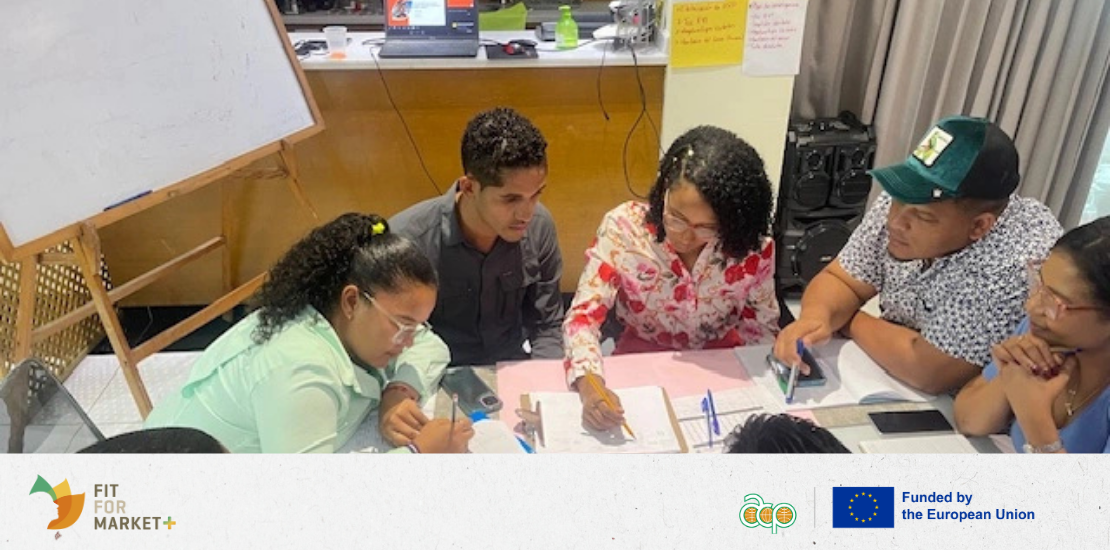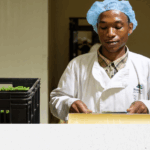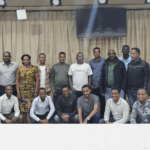- 03/11/2025
- Posted by: Sandra Borma
- Category: News

This training session, held in Baní (Dominican Republic), focused on “Developing a crop protection strategy centred on the mango and banana sectors.” Organised with the support of the Fit For Market Plus (FFM+) programme, the initiative aimed to strengthen local capacities in integrated pest management (IPM) and promote sustainable, competitive agricultural practices.
A participatory and inclusive training
The session brought together a wide range of stakeholders from the agricultural sector, including production managers, technical supervisors, exporters, agronomists, plant health and phytosanitary surveillance technicians, administrators, and producers. The session was opened by Rafael Leger, President of PROMANGO, highlighting the strong commitment of the Dominican private sector to protecting export-oriented value chains.
Concrete results in the field
Participants commended the relevance and usefulness of the training, which effectively combined theory and practice. They were able to: strengthen their knowledge of integrated pest management (IPM), particularly in relation to climate and plant health challenges; apply these skills directly in the field through pest and disease identification, incidence assessment, and the development of an integrated management plan and share experiences between the mango and banana sectors, fostering a highly collaborative and participatory learning environment.
Perspectives for continued support
Participants expressed their wish to extend the duration of the training, strike a better balance between theory and practice, and deepen their understanding of insect management.They also emphasised the need for more tailored support within their organisations to put the training outcomes into practice.
A key step towards agricultural sustainability
This initiative directly contributes to strengthening the capacities of local actors to: produce sustainably while remaining competitive in export markets; ensure product quality and safety for international trade; and consolidate COLEAD’s role as a key partner for agricultural innovation and sustainability in the Caribbean region.
This activity is supported by the Fit For Market Plus (FFM+) programme, implemented by COLEAD within the Framework of Development Cooperation between the Organisation of African, Caribbean and Pacific States (OACPS) and the European Union. This publication receives financial support from the European Union and the OACPS. The content of this publication is the sole responsibility of COLEAD and can in no way be taken to reflect the views of the European Union or the OACPS.





